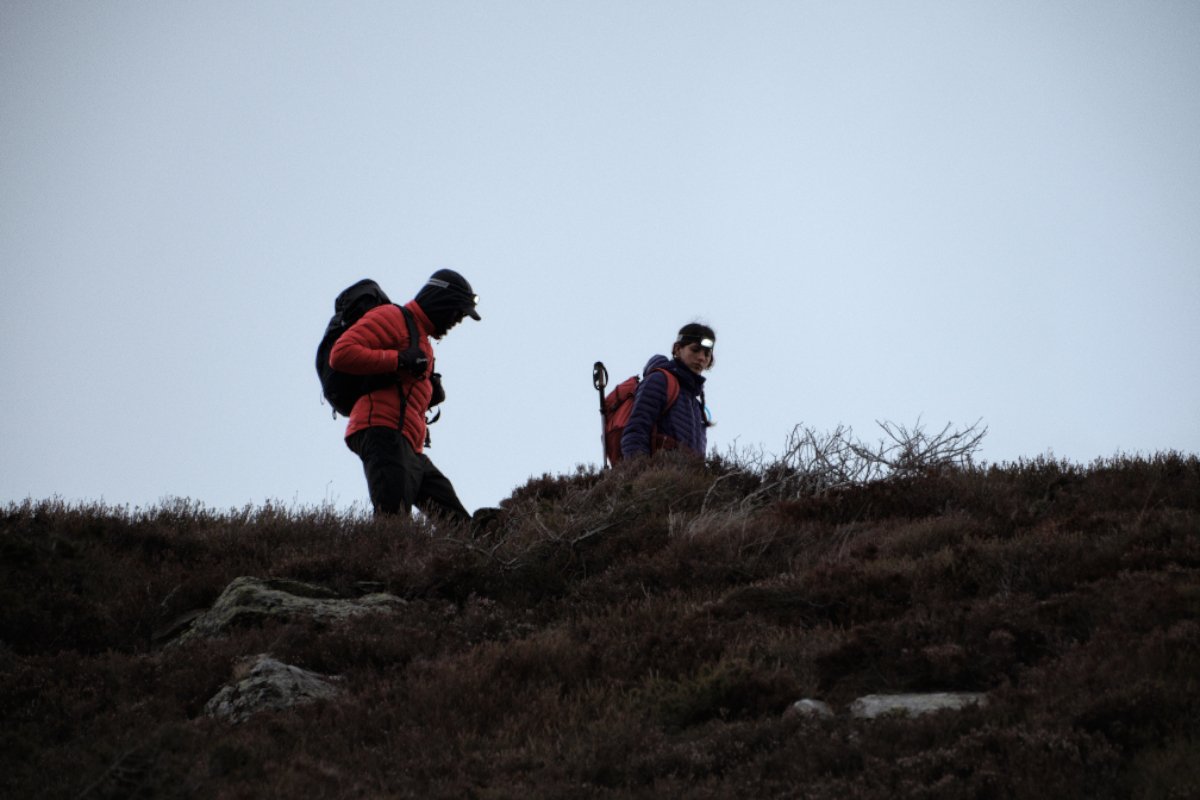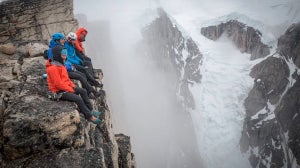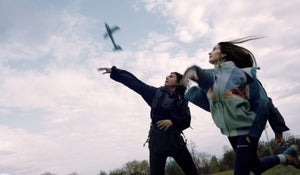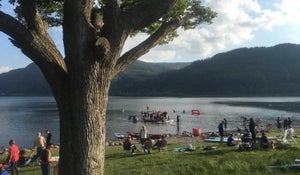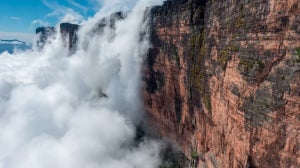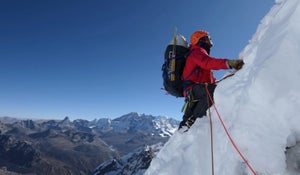
Gabby Salazar is a nature photographer, conservationist, and explorer. With an avid interest in the fields of environment, behaviour change and social science Gabby explores the Biophilia Hypothesis and asks whether the urge to go out and experience cold and wild places is hardwired into our DNA.
Words: @gabbyrsalazar
Are humans innately drawn to nature and other living things? Why are we attracted to wild places, like mountain peaks and landscapes blanketed in ice? The Biophilia Hypothesis, popularised by American biologist E.O. Wilson, suggests that the desire to connect with nature is rooted in our biology and genes. Wilson was an ecologist and entomologist who answered big questions about the natural world. He was also a naturalist who was endlessly fascinated with the natural world and our relationship with it. And, in 1984, he published a book suggesting that biophilia or the tendency to ‘love’ (philia) ‘life’ (bio) has an evolutionary basis [1].
As a nature photographer, conservationist, and explorer, I am also fascinated by the relationship between humans and nature. Like Wilson, I spent a lot of time outside while I was growing up. In winter, I searched for animal prints in freshly fallen snow and used a hand lens to examine the patterns in snowflakes. And, whenever I could, I brought friends and family members with me, often pointing out details they had never noticed. These early wanderings raised many questions in my mind - what draws people out of a cosy living room onto the cold summit of a windswept mountain? Why do some people prefer to travel to far-flung glaciers, while others want to spend time in a mall? Are we born with a connection to nature, or does it need to be nurtured?
These early wanderings raised many questions in my mind - what draws people out of a cosy living room onto the cold summit of a windswept mountain? Why do some people prefer to travel to far-flung glaciers, while others want to spend time in a mall? Are we born with a connection to nature, or does it need to be nurtured?
Anthropologists, sociologists, and psychologists have been asking similar questions for years. They have found evidence of biophilia while studying whether people prefer natural or built landscapes and when examining human animal relationships [2]. Researchers have also examined how relationships with nature are changing. Dr. M Jackson, a glaciologist, has studied how glacial retreat will impact human communities in Iceland. Her work suggests that the changing landscape will affect far more than the availability of water - it will also impact people’s sense of place and their relationship with the land [3].
Research has also looked at the benefits of nature to humans and the consequences of being disconnected from nature. We now know that time spent in nature can reduce stress, promote positive mental health, and increase focus [4]. Stronger connections to nature have been associated with greater happiness and life satisfaction and some studies have even shown that nature exploration can promote learning [5, 6]. Time spent exercising in cold weather may even have particular health benefits, although more research is needed [7].
For more people to realise these benefits, we need to make outdoor spaces and experiences accessible to everyone. Environmental education programs can help with this, as can the creation of more parks and protected areas close to the areas where people live and work. Biophilic design - the creation of buildings and spaces that promote a connection to nature - can also help.
While we may never find a ‘nature gene’, I think the concept of biophilia is still useful. It can help us reflect on our own relationships with nature and encourage us to spend more time fostering those connections. As I write this, I’m looking out at the snow-capped peaks of the Himalayas. I’ve travelled countless hours to be here, drawn by the irresistible tug of this rugged landscape. I am filled with awe and wonder and a deep sense of well-being. When was the last time you nurtured your biophilia?
References
[1] - Wilson, Edward O. (1984). Biophilia. Harvard University Press.
[2] - Ulrich, Roger S. (1993). Biophilia, biophobia, and natural landscapes. The Biophilia Hypothesis, 73-137.
[3] - Jackson, M. (2019). The secret lives of glaciers. Green Writers Press.
[4] - Hartig, T., Mitchell, R., de Vries, S., & Frumkin, H. (2014). Nature and health. Annual Review of Public Health, 35, 207-228.
[5] - Capaldi, C. A., Dopko, R. L., & Zelenski, J. M. (2014). The relationship between nature connectedness and happiness: a meta-analysis. Frontiers in Psychology, 5, 976.
[6] - Kuo, M., Barnes, M., & Jordan, C. (2022). Do experiences with nature promote learning? Converging evidence of a cause-and-effect relationship. High-Quality Outdoor Learning, 47-66.
[7] Feng, Z., Hu, Y., Yu, S., Bai, H., Sun, Y., Gao, W., ... & Zhang, X. (2023). Exercise in cold: Friend than foe to cardiovascular health. Life Sciences, 121923.
COLD STUDIES__AW23
Documenting the endless pursuit of staying outside for longer.
Cold Studies is a platform dedicated to cataloguing, studying, and sharing all things to do with outdoor exploration in cold weather conditions.

Related Articles


